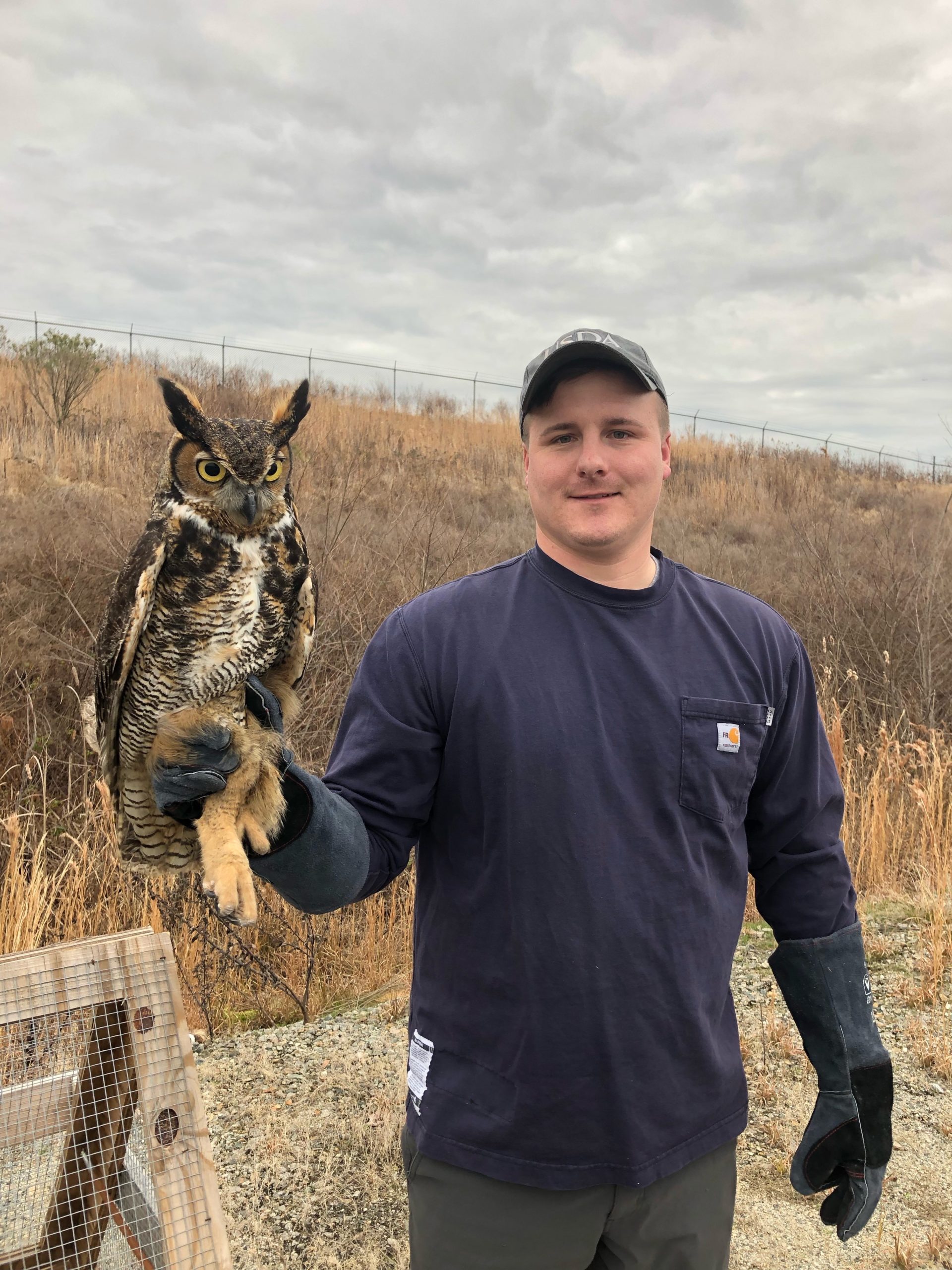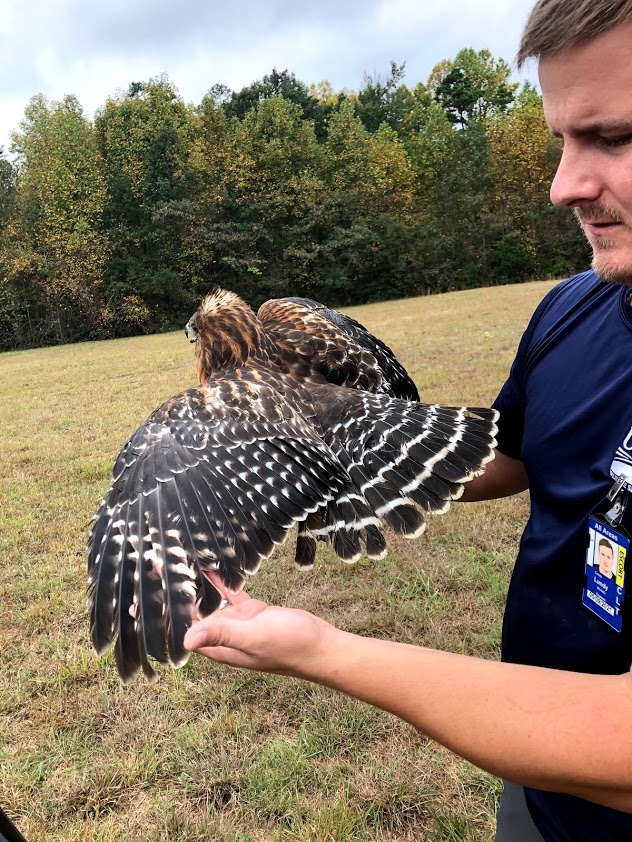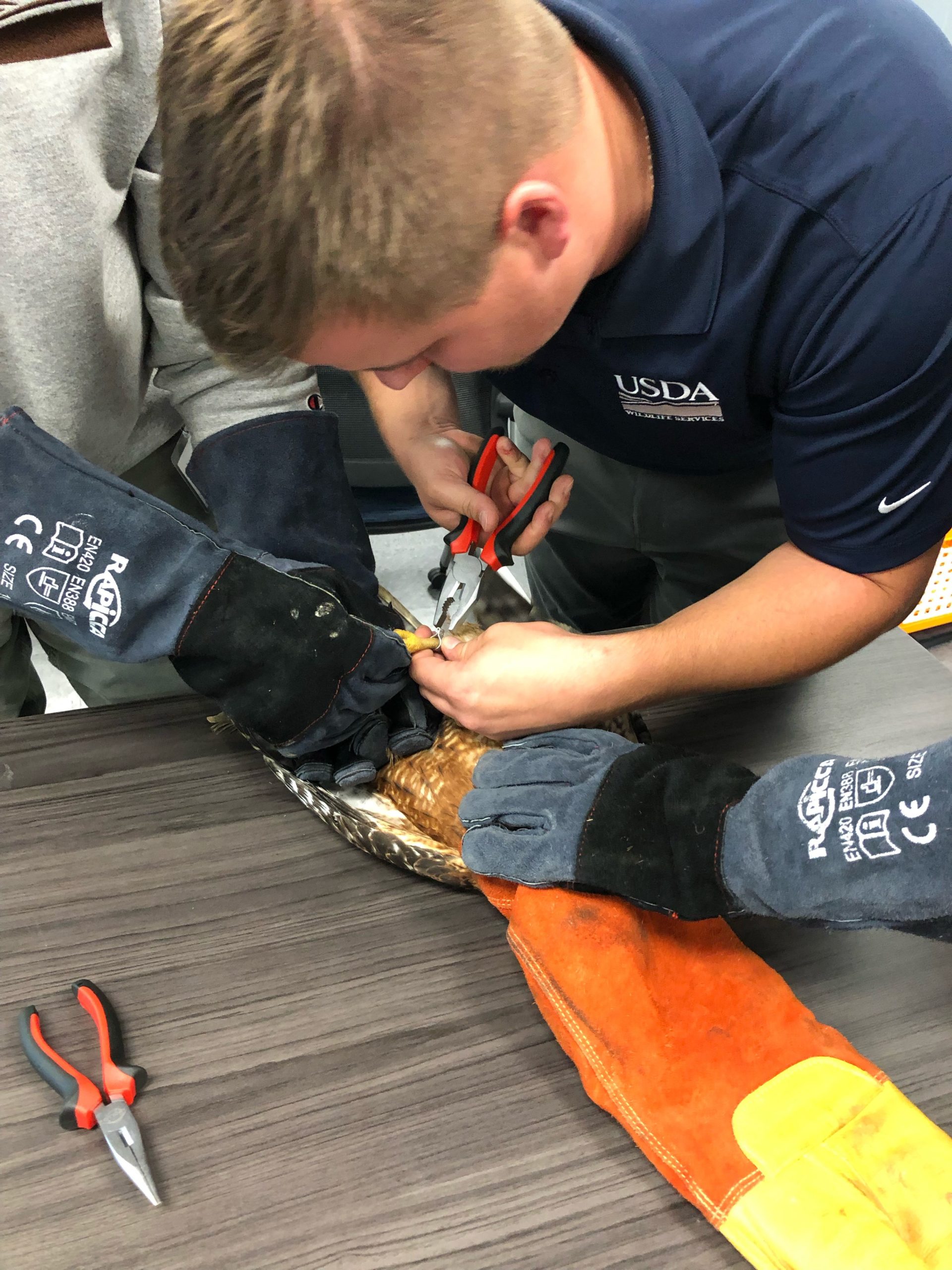
Young Alum of the Month – June 2021
Coady Lundy
Hometown: Chariton, IA
Job Title and Company: Wildlife Biologist – U.S. Department of Agriculture, Animal and Plant Health Inspection Service, Wildlife Services
Coady Lundy (’15 animal ecology), wildlife biologist for the U.S. Department of Agriculture, provides federal leadership and expertise to resolve wildlife conflicts to allow people and wildlife to coexist. In his role, Lundy specifically serves as the lead wildlife biologist for Seymour Johnson Air Force Base (SJAFB) in Goldsboro, North Carolina, overseeing all Bird Aircraft Strike Hazard mitigation efforts to reduce the risk of bird-aircraft collisions.
“To achieve this, we utilize an integrated approach to wildlife damage management strategies to protect agriculture, human health and safety, natural resources, and property… my team and I oversee all airfield land management practices to manipulate the environment, making it less desirable for high-risk strike species. Other bird strike mitigation tasks include various wildlife survey methodologies, raptor trapping/banding/relocation, direct control of wildlife on airfield, etc,” says Lundy.
 An average day for Lundy usually starts with a morning briefing with the chief of safety and safety team at the base. He works with wildlife technicians to complete initiatives and daily tasks like setting raptor traps, monitoring airfield for wildlife activity, and conducting surveys that may be due that day.
An average day for Lundy usually starts with a morning briefing with the chief of safety and safety team at the base. He works with wildlife technicians to complete initiatives and daily tasks like setting raptor traps, monitoring airfield for wildlife activity, and conducting surveys that may be due that day.
“I really enjoy working with the Air Force Safety Team to help reduce the safety risk our pilots face when flying sorties here at home,” Lundy says. He explains that bird strikes pose a serious physical hazard to the aircrew and financial risk to government assets, which are taxpayer assets.
“There are many moving parts required to be in sync for us to be successful with our mission. Constant communication between USDA and different Air Force departments is required for Bird Aircraft Strike Hazard work to function smoothly. For this reason, I’m usually tasked with meeting with different commanders and keeping the communication lines open, so there isn’t any confusion as to what USDA needs to be successful on airfield. I’m also responsible for updating and auditing our federal and state permits daily,” Lundy says.
Lundy notes that COVID-19 presented serious challenges for he and his team.
“Being stationed at a fighter wing, we were deemed essential and thus our daily activities had to continue. We adjusted by moving most meetings to a virtual platform which presented its own challenges, but we were able overcome the hiccups and adjust accordingly. Things are slowly moving back to normal now that that ample access to vaccines have been made available,” Lundy says.
 Stephen Dinsmore, professor and chair in the Department of Natural Resource Ecology and Management, was Lundy’s advisor during his time at Iowa State. He became fascinated with avian ecology and spent three summers serving as an avian point count technician for Dinsmore’s Multiple Species Inventory and Monitoring Program. This program is an ongoing collaborative research project between Iowa State and Iowa Department of Natural Resources.
Stephen Dinsmore, professor and chair in the Department of Natural Resource Ecology and Management, was Lundy’s advisor during his time at Iowa State. He became fascinated with avian ecology and spent three summers serving as an avian point count technician for Dinsmore’s Multiple Species Inventory and Monitoring Program. This program is an ongoing collaborative research project between Iowa State and Iowa Department of Natural Resources.
“Nobody had a greater influence on my education or career path than Dr. Stephen J. Dinsmore. Dr. Dinsmore took me under his wing and helped guide me to become successful in the field of wildlife ecology,” Lundy says.
“Coady was an outstanding natural resource ecology and management student across the board – academically successful, engaged in student groups, and focused on making good choices about his career path. He is a quick learner and did outstanding fieldwork on my projects. I’ve really enjoyed watching his success in U.S. Department of Agriculture, Animal and Plant Health Inspection Service in the short time since he left Iowa State, and look for him to be a leader in that agency in the near future,” says Dinsmore.
When applying for wildlife positions, Lundy encourages students to talk with their professors and look for different volunteer and work opportunities, like applying for seasonal technician positions during the summer months.
“Enjoy your time in college, but don’t forget why you’re there. Studying hard and getting good grades is extremely important, but the connections and field experience you obtain while in school is equally as important,” Lundy says.
Lundy wanted to finish with a special plug for opportunities with USDA Wildlife Services.
“If you are looking for paid experience, reach out to USDA Wildlife Services in Urbandale, Iowa. We have technicians that work across the state and David Marks-District Supervisor (david.r.marks@usda.gov) is always looking for college students to work on his projects. This is a great way to gain work experience AND get your foot in the door at the federal level,” Lundy says.



